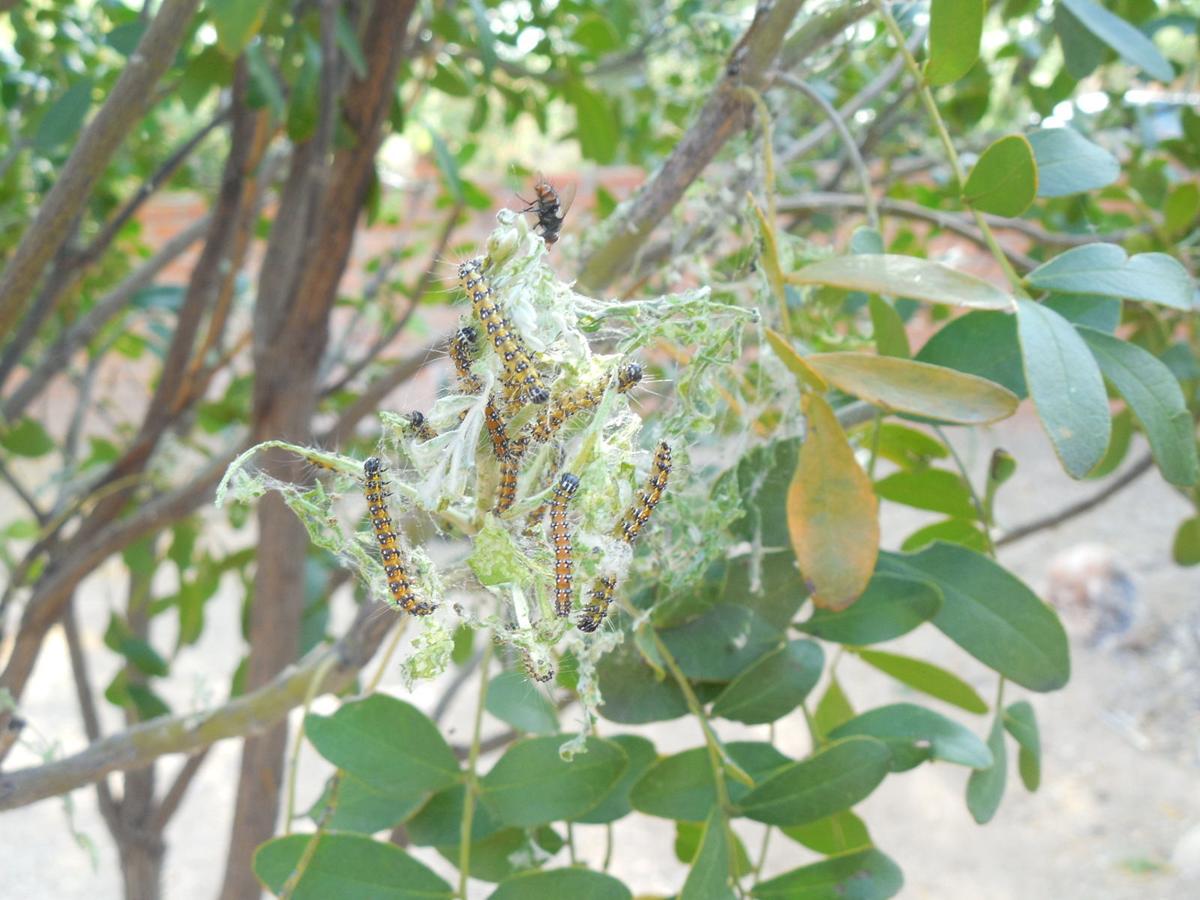Q: These caterpillar bugs are all over my Texas mountain laurel (the same one that had the red and black plant bugs in March – which I sprayed off with a soap solution). There are probably at least 10 groups of these caterpillars on the tree. Suggestions?
A: These insects are called genista caterpillars (Uresiphita reversalis) and they are commonly found throughout the southwest on Texas mountain laurels. Their damage doesn’t affect the overall health of the tree unless there are unusually high numbers of them. The damage is often only cosmetic. The same soap solution can be used against these caterpillars. Soap acts an irritant and doesn’t always completely solve the problem. You might get the same result by spraying them with a hose. The benefit of the caterpillars is they are food for birds so you could leave them there and put up with the minor damage the caterpillars cause when feeding. Other solutions include pruning off the infested ends of branches, hand-picking the caterpillars, and various insecticides labeled for use on landscape trees and shrubs. An organic solution is spraying Bt (Bacillus thuringiensis) on the leaves where they are feeding. This works best when the caterpillars are young and most susceptible to the poison. The Bt bacteria are poisonous to caterpillars but not to anything else. Since there are several strains of Bt, make sure you use the one labeled for caterpillar pests. As always, when using any pesticide it is important to read the label and follow instructions to protect you and those other non-target organisms that might be exposed to the spray. By the way, the red and black bugs (Lopidea major) you saw earlier this year are also just a minor pest that feeds on Texas mountain laurel.
Peter L. Warren is the urban horticulture agent for the Pima County Cooperative Extension and the University of Arizona. Questions may be emailed totucsongardensage@gmail.com




